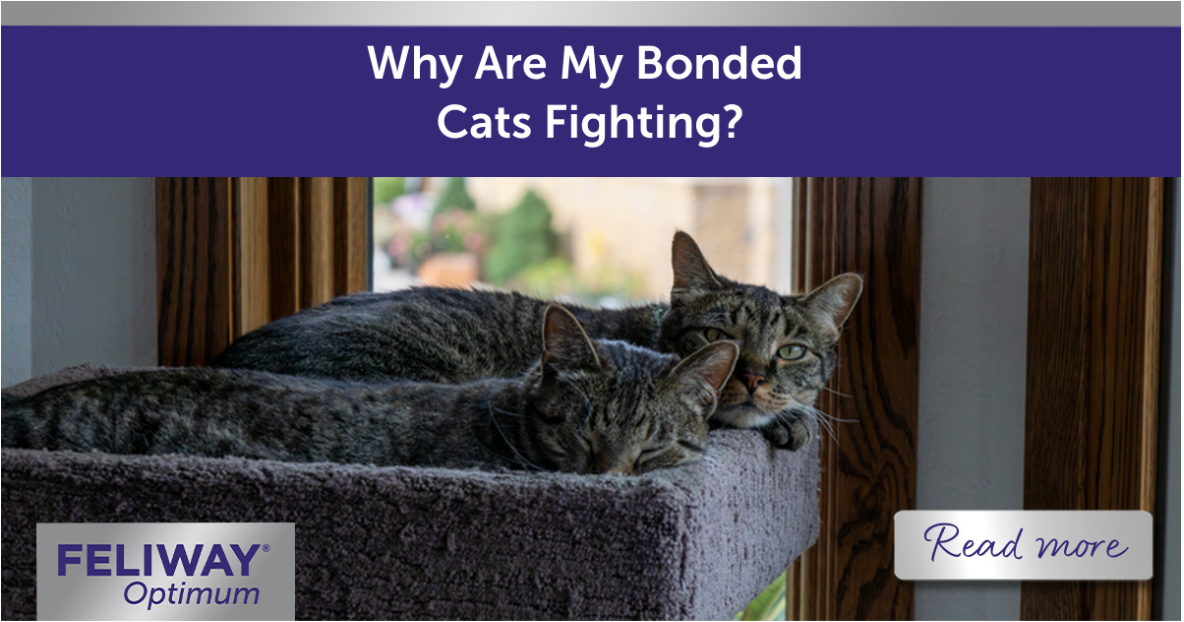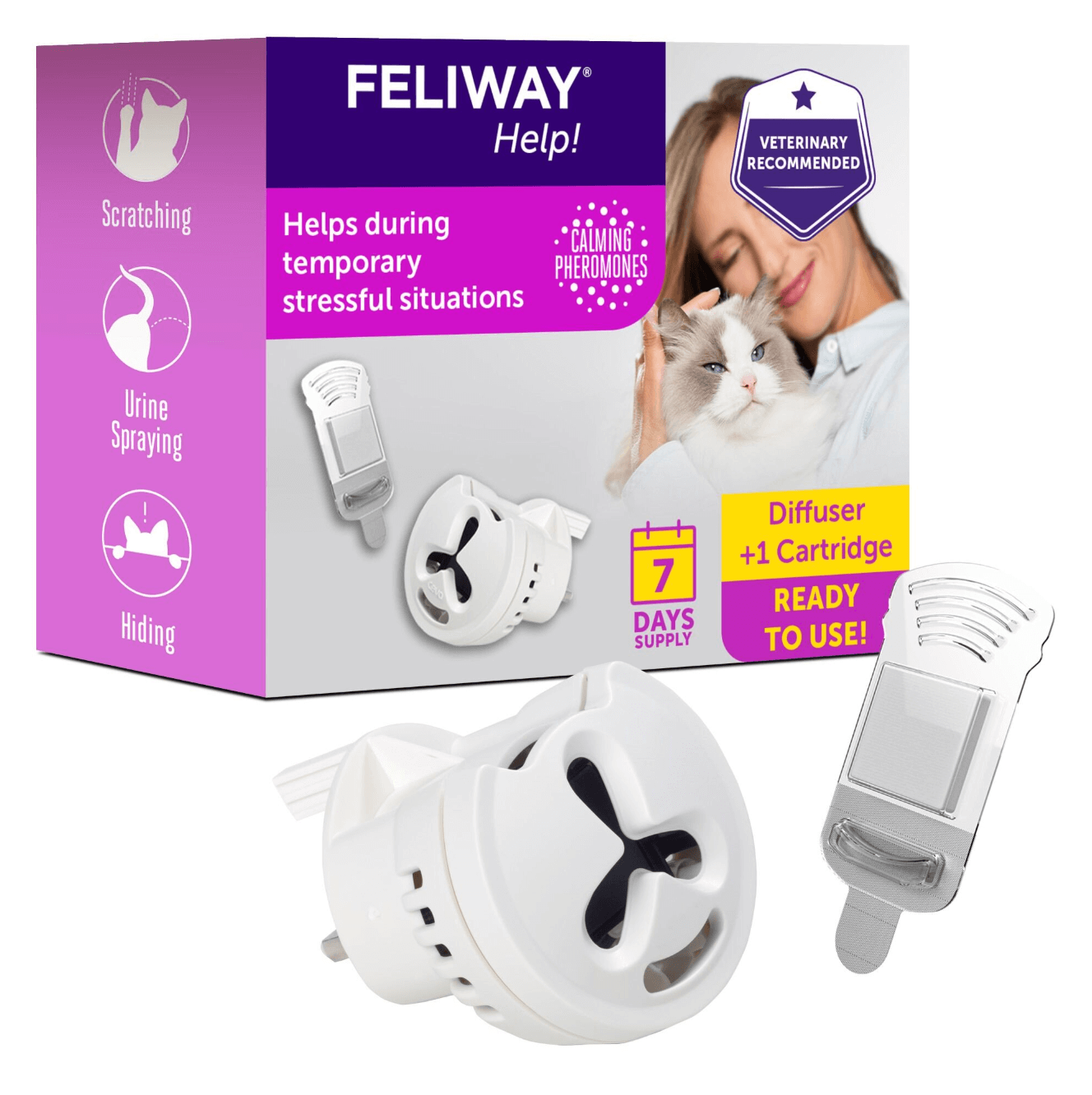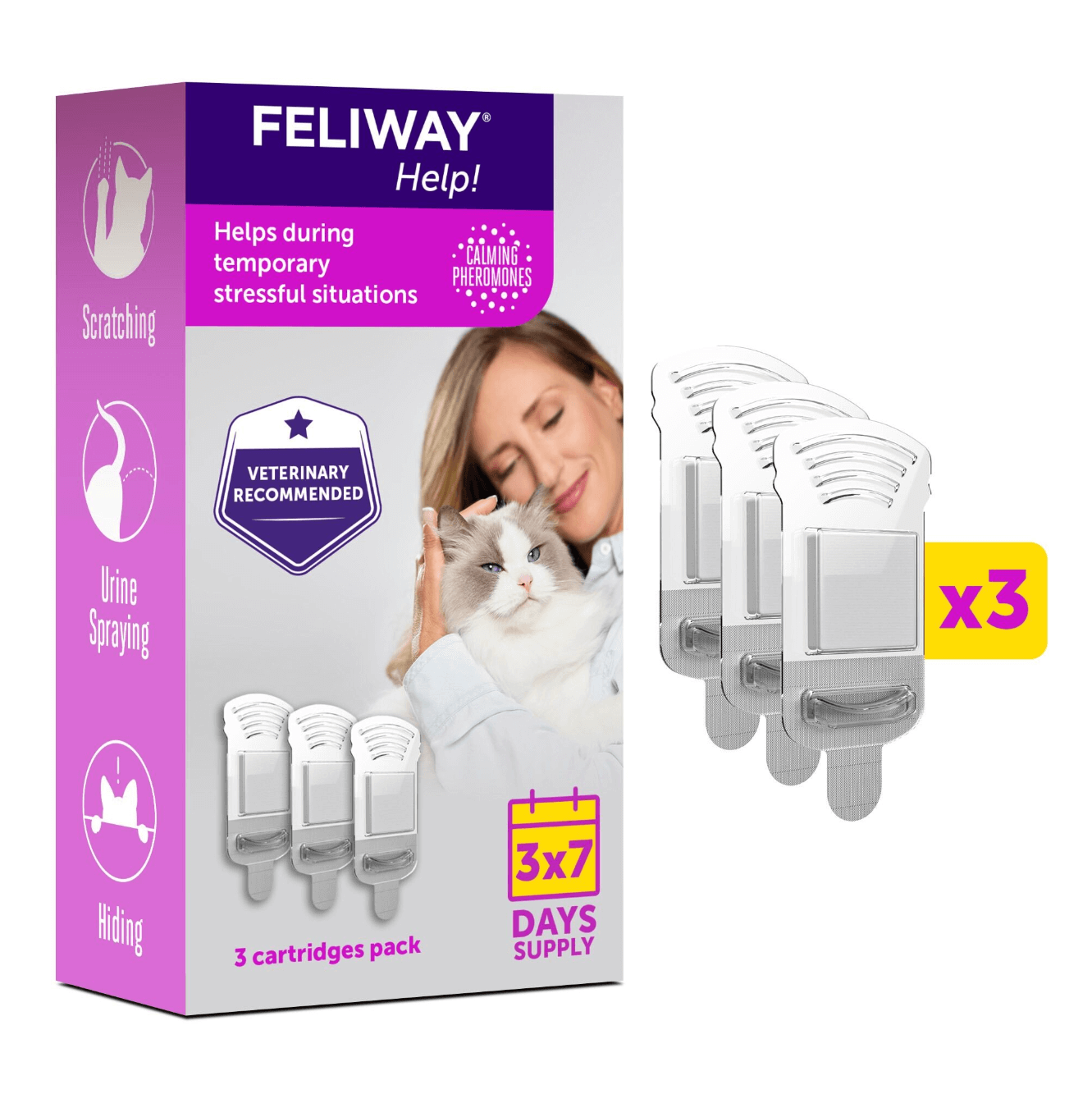
Why Are My Bonded Cats Fighting?
Everyone has their off days, even our furry friends! So, there may come a time when your bonded cats disagree with each other. However, there is a difference between your bonded cats fighting playfully and having conflict. In this blog, we will share our advice on why cats fight and ways to limit it.
Why Do Cats Fight?
There are many different reasons why bonded cats may fight. When change occurs, even cats that have lived together for a long time can begin to fight. Some of the main reasons for hostile cat behaviour include:
- Being away from home – If one cat has been away for a period of time, such as if they have been at the vets, then they can return ‘changed’ or smell different than their usual scent. This change can come as a threat, altering the other cat’s behaviour.
- Sharing resources – Conflict may come from changes. Cats are creatures of habit (quite literally!) and routine is essential for them, so changes to their routine, space, or people they’re used to can cause your bonded cats to fight.
- Reaching social maturity – If your kittens have come from the same litter, this may not mean they will remain close friends as they grow up. Siblings can drift apart from around 18 months as they start to reach social maturity. This means that they may need more space and access to separate resources to help them live happily in the same home.
- Redirected frustration: Bonded cats fighting can be a result of one cat taking their frustrations out on the other. For example, if one cat sees something it doesn’t like through the window and the other cat happens to walk past, this reaction could be directed at the housemate cat, leading to conflict.
- Medical discomfort: If your cat is uncomfortable due to medical reasons, they may be less tolerant of social contact, or a loud noise may spook them, leading your cat's body language to become aggressive towards their fellow housecat.

Why Are My Bonded Cats Fighting?
One of the main reasons why your bonded cats are fighting might be because they’re stressed. This can impact your cat’s body language and behaviour. Some situations that can induce stress for your cats can be changes in their environment, health issues and insufficient space or resources.
The territorial nature of cats can also lead to your bonded cats fighting. If you’ve recently moved house and your cat’s behaviour towards other cats has changed, this might be because they feel stressed and insecure because of a new environment. Ensuring that each cat has somewhere safe to rest in their own space, and has their own resources (including a litter tray, food and water bowls, beds and scratching posts), can help to reduce the risk of your cats falling out.
FELIWAY Optimum is a great way to reduce the signs of feline stress that come with changes to your cat’s environment, leading to enhanced serenity, helping to create a more relaxed environment, and maintaining harmony between cats living together.
Are They Play Fighting or Real Fighting?
Play fighting is a normal and healthy cat behaviour. This kind of play is a fun activity for them as it provides stimulation from boredom and can be a great way for bonded cats to continue to grow their relationship.
Play fighting and real fighting can look very similar in cats; however, there are some key differences. When cats are playing, their claws are retracted, and it's often silent with them chasing each other and rolling around. Play fighting does have the potential to escalate slightly, but it will return to normal very quickly.
When physically fighting, your cat’s body language will noticeably change. They will become tense, their ears will flatten, and their claws will come out. This is usually accompanied by noises such as hissing or screeching. After a physical fight happens, there can still be tension, and you might notice that your cats don’t go back to their normal activities for a little while.
If you are concerned about your cat’s behaviour after a fight, read our blog to learn the signs to watch out for and how you can help them.

Ways to Resolve Fighting Behaviour
If your bonded cats are fighting, don’t worry, there are things that can reduce the conflict to create a harmonious environment:
- Make sure there are enough safe ‘zones’ in your house for each of your cats to have the space to sleep, eat, and do all they need. This means that each cat has access to resources without having to interact with another cat.
- Use FELIWAY Optimum to help your cats feel more secure in general and encourage harmony for your cats. Simply plug them in where your cats spend the most time, trying to avoid areas where conflict has happened, to reduce their tensions.
- Reward your cats when they remain calm in each other’s presence. This creates a positive experience and reinforces your cat’s behaviour. Feeding them a delicious treat like Happy Snack by FELIWAY when they’re in the same space as you, but not too close to each other, can be a good way to build positive associations.
- Separate your cats, especially if an intense fight has occurred. Let them spend some time alone for at least 24 hours and then re-introduce them gradually. This will help re-establish positive associations with each other. Just keep an eye on your cat’s body language throughout to ensure they are coping well. If you see your cat isn’t happy, take it slowly and go back a step in the re-introduction process.
It’s also important to remember that encouraging cats to bond with each other again can take time. Have patience, and don’t punish your cat for showing signs of conflict as this can worsen the situation. If these tips haven’t made a difference in your cat’s relationship, seeking professional advice can help. A vet can help to rule out any important medical issues and a behaviourist can check on your cat’s behaviour to create a plan to improve your cat’s relationship.
If you want to learn more about cat behaviour, you can check out our other blogs. To help relieve conflict and put your cats at ease, browse our range of pheromone diffusers. You can also sign up for our newsletter to stay up to date with all the latest information!




































